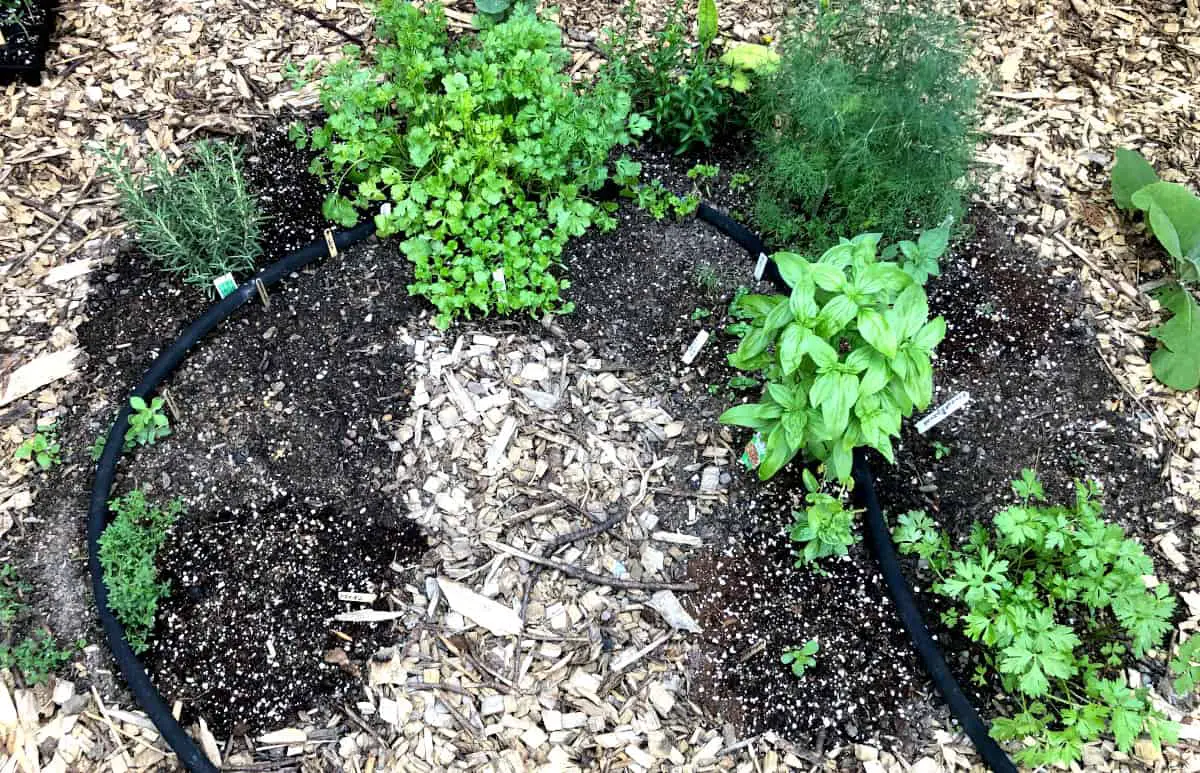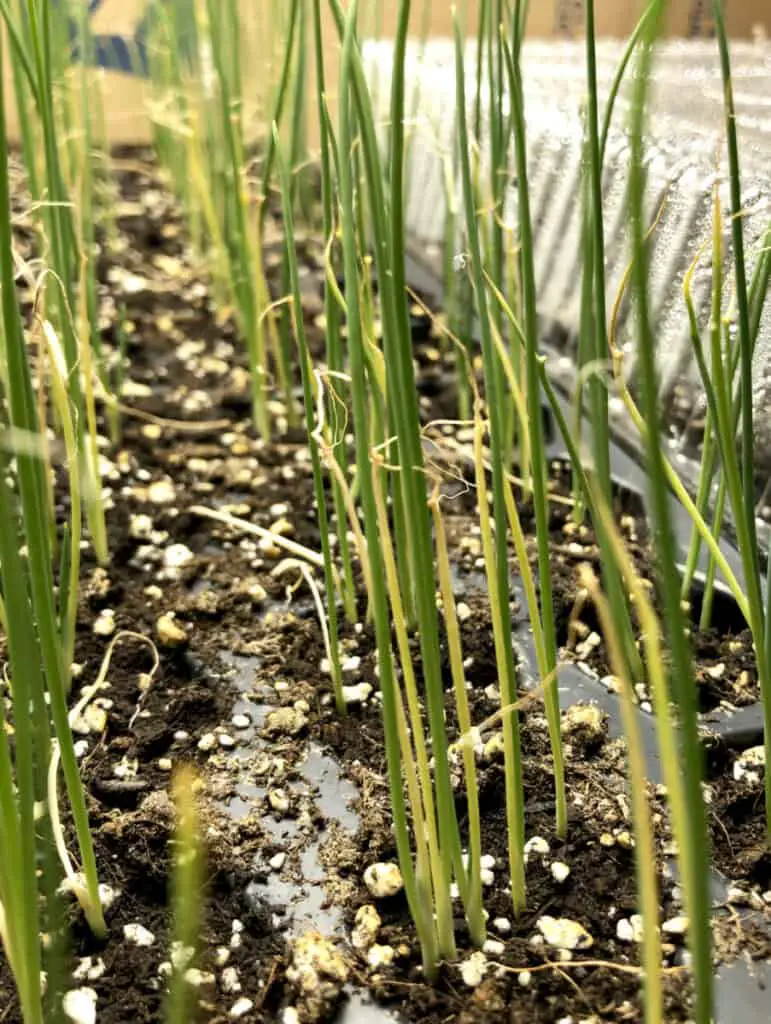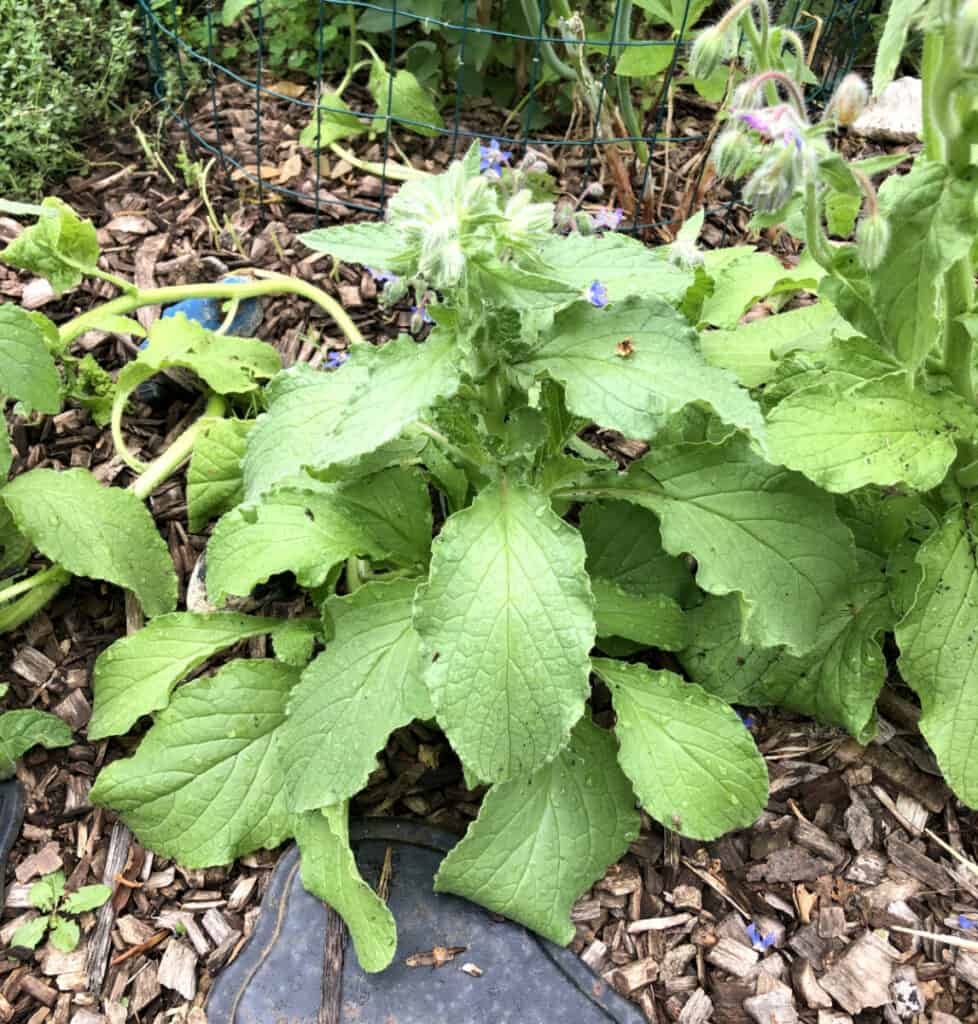Watering a garden is not really a big deal, so do not overthink it. There are a few simple rules, and when kept, watering a vegetable garden will become rather a no brainer.
How to water a vegetable garden:
- In general, it is advised to water the vegetable garden early in the morning while the sunshine is still very weak and not as intense. The water will have enough time to reach the roots of the plants and plants will have enough time to soak up the water and be well hydrated. A well hydrated plant can withstand the heat of the day better than a thirsty one.
- If you don’t have time to water in the morning then water in the afternoon.
- It is advised to avoid watering at night when possible. If you live in an area where there are a lot of slugs, or a humid climate, I do not advise to water your garden in the evening or night as moisture attracts slugs and pests which can damage your garden overnight and humidity along with moist soil for long and dark hours can form and feed mold and fungus on leaves and stalks.
- Some gardeners however prefer to water their garden late evening to keep their soil and roots of the plants moist for as long as possible to avoid evaporation by the sun, and drying by the winds. This can be however applied only in very dry areas or areas where the sun is very intensely hot during the day and the soil dries out very quickly.
- Water deeply and in several intervals till you water about 1 inch deep.
- Water your plants at the base so the soil can soak up all the water and deliver it to the root system.
- Avoid watering the foliage as the water drained down the foliage can distribute the water rather around and away from the plant than to the roots directly.

Can I water a garden during the day?
Some gardeners avoid watering during the day because they worry about water being evaporated by the sun too rapidly, and for the leaves to be scorched by the sun penetrating water droplets. However, if you see the plants are distressed and in immediate need of water, then water them right away without any delay whether it is a middle of the day or not. A watered plant in the middle of the day is stronger than a weak and stressed plant being watered in the afternoon or next morning.
Use common sense, even when it comes to watering a garden. If I see my plants being droopy, weak, and my soil tells me it is dry, I will water no matter if it is the midday or not. When you see the need to water, then simply water your plants.
Be careful when watering at midday, as the water in the hose can be really hot. Let the hot water out before you water your plants.
When is the best time to water vegetable garden
It is advised to water the garden before 9am when the sun is weaker, less water is being lost due to evaporation, and a good amount of water can be soaked into the soil all the way down to the roots before the hot sunshine. If however you don’t have time to water in the morning, then water later in the afternoon, after 4pm on, before the nightfall when night pests like slugs are active.
What happens if I water my garden too much
Excessive watering can create fungus and mold invasion especially in plants prone to leaf mold. Overwatering can attract slugs and other moisture liking pests which can damage your garden overnight. It can also cause root rot and literary drowns your plants.

What happens if I water my garden too little
Poor watering will stress and weaken your plants and instead of cropping, your plants will fight for survival where they will put all their energy instead of yielding. The leaves might turn brown, become scorched and brittle.
Should I water garden daily?
An inground garden and a raised bed garden in general does not need to be watered daily. A container garden might need daily watering as the soil in containers dries much quicker than the soil in an inground or raised bed gardens.
Young seedlings in seed trays need to be watered twice a day until they are well established and repotted into a larger container or into the garden. Established plants and vegetables need to be watered about two to three times a week, depending on climate conditions and weather. Check your soil if it needs to be watered.
The quality and structure of the soil influences the frequency of watering. A healthy soil that drains well and keeps moisture does not need as frequent watering as the soil that does not retain moisture well and lets the water just run through.
How often should I water a vegetable garden
In general, during normal weather conditions a garden should be watered about 2-3 times a week. However, as we all live in various climates, and tend to different garden types, it is best to use your common sense.
An inground garden in temperament climate will need less watering than a container garden in dry and hot climates, which might need to be watered daily.
A container garden needs watering more frequently than a raised bed or inground garden. Always check your soil first, your soil and plants will provide the best indication for watering.
Count in the rain. If there was a heavy rain a day ago and your soil is still moist, then you do not need to water. However, if there was no rain for a while and instead you got an intense sun and dry wind you might need to water more often. Check your soil for dryness and water as needed.
How to find out if my garden needs watering
This is rather simple to find out if a garden needs to be watered. Take your index finger and stick it into the soil. If you feel no moisture, if you feel the soil is dry around your finger than you need to water. If the soil around your finger feels moist it does not need to be watered. Another method is to take an inch deep scoop of soil and squeeze it. If it feels dry, falls apart right away, and does not hold the ball shape it needs to be watered. If the soil feel moist, holds a ball shape, it does not need to be watered.
How can I use less water in my vegetable garden?
- One of the best ways to use less water in a vegetable garden is to use mulches on top of the soil. Mulch will help keep water in your soil instead of sun and wind drying it out.
- Water your garden in the morning rather than in the midday or when the sun is hot when you can lose some amount of water to evaporation.
- If possible, avoid watering during high wind as wind can blow away a large percentage of water that won’t be delivered where you want it to be.
- Water directly at the base of your plant and avoid watering from overhead as foliage will distribute waterflow rather around the plant than directly to the base and the roots.
- Follow closest recommended spacing when planting your veggies so they would have enough space to grow and mature but would also shade most of the ground around them to keep it moist for as long as possible.
- For plants that require larger spacing build up the soil around them so the base of the plant sits in the trench.
- If possible, dig up a hole between the plants (let’s say in the middle of the raised bed) to burry your kitchen scraps, weed, and grass clippings then soak them with water and cover with soil. This will serve as a moisture reservoir each time you water as these will soak and keep moisture in. These will also decompose and fertilize plants around them.
- Make water reservoir in your garden by burying a plastic milk jug, or plastic bottle with a tiny hole in each bottom corner for the water to drain out very slowly. Fill with water and close. Water will slowly drain out of the milk jug reservoir directly into the ground reaching the roots under the surface.
- In severe drought use your bath water, shower water or water remained from washing dishes to water your plants. Do not worry about a little bit of soap getting to your plants. There are many much more dangerous and poisonous chemicals used to grow food in masses so a little bit of your soap should not do any damage to your plants. Little bit of your soapy water and dirt coming off of your body should not harm your plats. I have seen gardeners in water restricted areas doing that. How do you think our ancestors watered their gardens living with no pluming?
- Use your kitchen water to water your plants. Water from rinsing your fruit and veggies, water from rinsing rice, unfished tea, water from cooked potatoes, and so on. If it is liquid that you could drink it or it touches your body with no harm to you, it is not going to harm your plants either. Be creative.

How deeply should I water vegetable garden
An industry standard is to give your garden 1 inch of water per week. A 1 inch of water should penetrate the soil somewhere between 6-15 inch deep. However different areas have different soil type. Loamy and sandy soil will be penetrated deeper compare to clay soil, therefore check your soil for moisture periodically as your garden’s needs might be different than the industry standard.
What does it mean to give 1 inch of water?
How to find out how much gallons of water you need pear 1 square foot to water 1 inch a week? Let us count, 1 square foot by 1 square foot=12inch x 12inch=144 x 1 cubic inch of water=0.6 liquid gallon of water. So, for 1 square foot of garden, you need 0.6 gallons of water to give it 1 inch of water.
How long does it take to water 1 inch
To find out how many minutes you have to water your garden to give it 1 inch a week, use an empty canned fish can (about 3 inches in diameter) mark 1 inch depth inside the can. Place several fish cans in your garden and water. Measure how long it will take to fill 1 inch using your hose, or irrigation. You can also divide 1 inch into three parts and measure how long it will take for you to fill 1 third of an inch and if you water 3 times a week it will accumulate into 1 inch a week.
Please share with me and readers gardeners what other methods you use in your garden to water, save water and keep your garden soil moist for longer periods of time.
Should you water garden in the morning or at night?
What happens if vegetable plants are too crowded and how to fix it
Vegetables that need very little space

